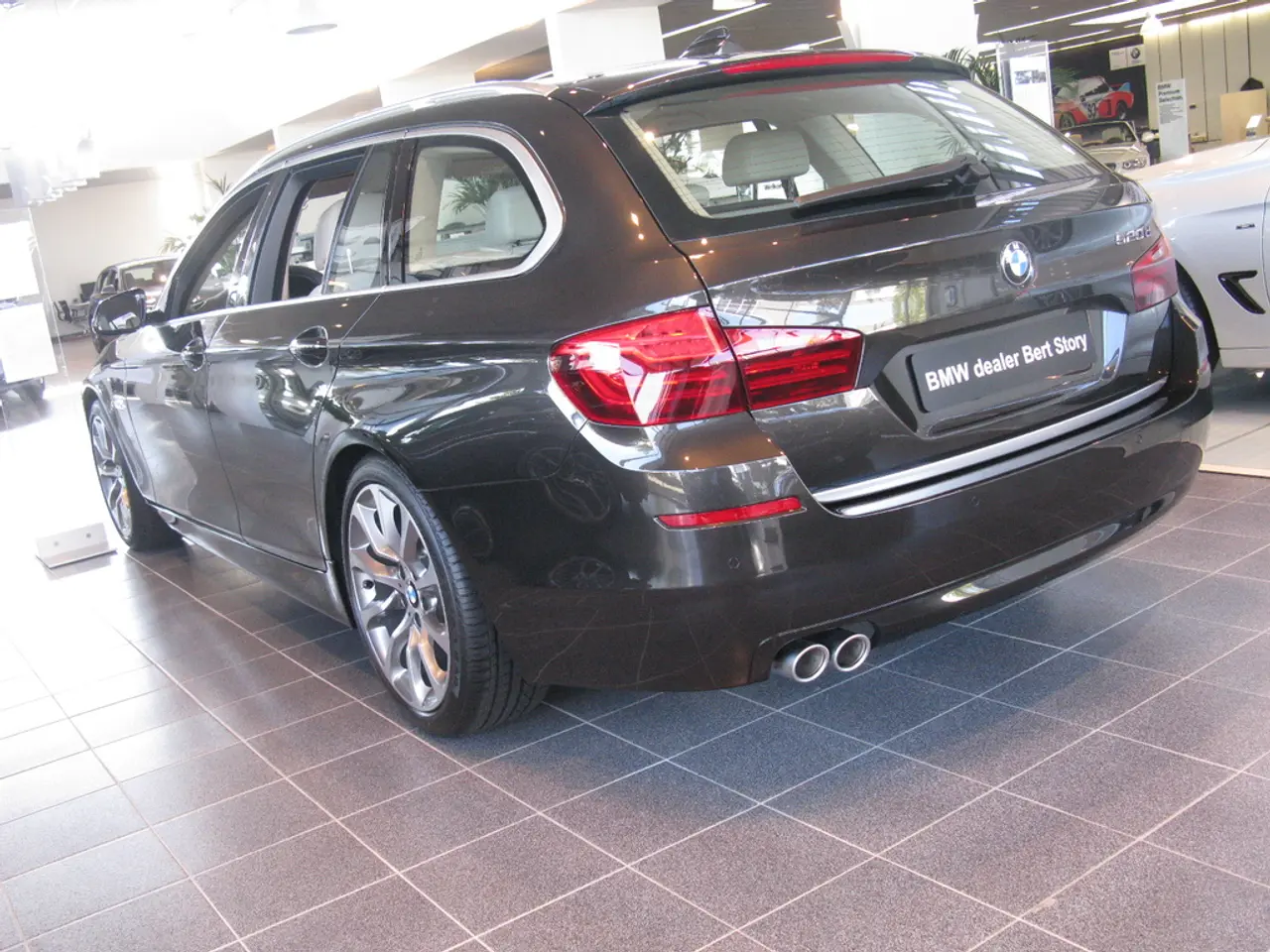Electric vehicles dominate the EuropeanUnion market by 2025, accounting for 15.6% of total car sales.
EU Automotive Market Shifts Towards Electric Vehicles
The first half of 2025 has seen a significant shift in the EU automotive market, with electric vehicles (EVs) gaining ground at the expense of traditional petrol and diesel vehicles.
According to recent data, electric vehicles, including battery-electric vehicles (BEVs) and plug-in hybrids, accounted for a combined market share of 24% in the first half of the year, a notable increase from 20% in the same period last year[1][2]. The growth in EV sales has been driven by a 22% increase in BEV registrations, totaling around 869,000 units[2], and a 19.5% rise in plug-in hybrid electric vehicles (PHEVs), with PHEVs reaching a volume of 469,410 new registrations[2].
Meanwhile, the market share of petrol vehicles has fallen to 28.4%[1], while the number of new petrol registrations dropped by 21.2% in the first half of 2025[1]. The decline in petrol sales was particularly significant in France, where new petrol registrations fell by 33.7%[1]. The market share of diesel vehicles also decreased, falling to 9.4%[1].
The shifting trends in the EU automotive market have contributed to a slight contraction in overall car sales, with new car sales growing marginally by only 0.1% up to May 2025 compared to the previous year[1].
Country-specific trends show Germany leading the EV market with a 16.9% share, despite a slight decline in overall vehicle sales[1][2]. The UK follows closely with a 13.7% share, and Italy is not far behind with an 11.6% share[1][2]. Growth disparities within Europe are influenced by national incentives, tax policies, and infrastructure—Germany had a strong 35.1% rise in EV registrations, while France saw a 6.4% decline[2].
Pressure from stringent CO2 emission regulations continues to accelerate EV adoption, while debates about future EU CO2 standards and industrial policies impact investment decisions related to EV manufacturing and supply chains[1][3].
In summary, electric vehicles are rapidly increasing their share in the EU market, with petrol and diesel vehicle sales declining as the overall EU automotive market contracts slightly. The market dynamics vary across countries due to policy differences and infrastructure developments. Regulatory pressure and ambitious EU climate goals remain key drivers supporting the shift toward electrification.
Some of the countries that have seen significant growth in EV registrations include Spain (+82.5%), Italy (+56.3%), and Germany (+55.1%). First-half registrations of hybrid vehicles reached 1,942,762 units. The Netherlands also experienced a +6.1% increase in battery electric vehicle registrations in the first half of 2025.
There is no strong evidence of a rebound or growth in petrol or diesel vehicle sales in H1 2025; rather, the transition to electrified vehicles continues to intensify across the EU[1][2][3]. In the first half of 2025, new registrations of passenger cars in the EU decreased by 1.9 percent compared to the same period last year.
- The expanding renewable-energy sector, specifically the finance sector, is showing increasing interest in the electric vehicle industry, as the EU automotive market shifts towards electric vehicles.
- With the growth of EV sales, particularly battery-electric vehicles and plug-in hybrids, the technology behind these vehicles will play a crucial role in the future of transportation.
- As the transition to renewable-energy sources becomes more prevalent, the finance industry is recognizing the potential for profitable investment in the electric vehicle industry, considering the increasing market share of electric vehicles over traditional petrol and diesel vehicles.
- The expansion of renewable-energy sources into the transportation sector, such as electric vehicles, is expected to continue as countries across the EU strive to meet ambitious climate goals and adhere to stringent CO2 emission regulations.




